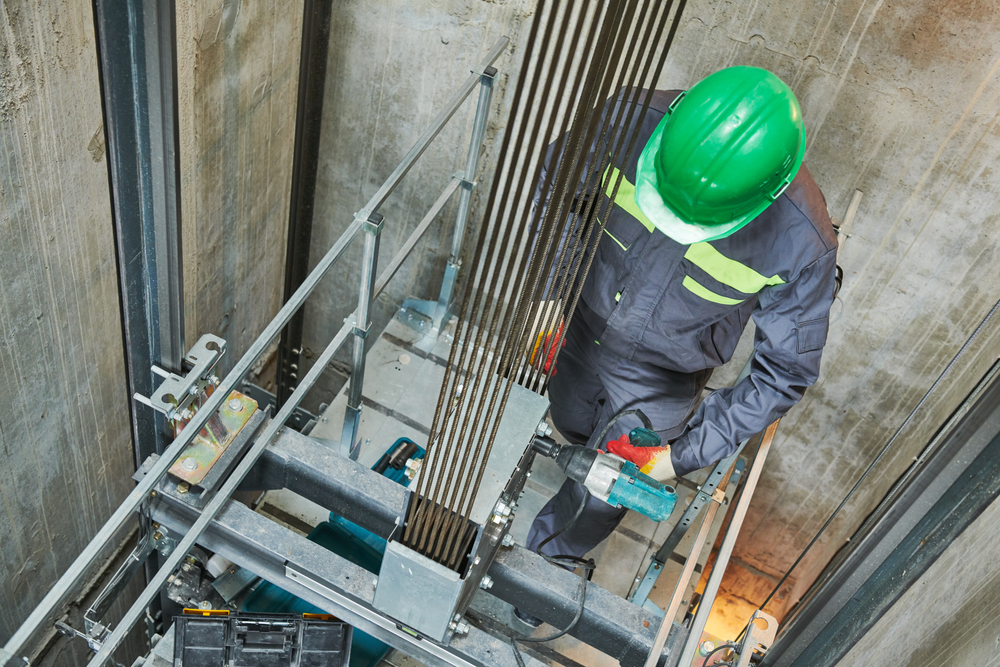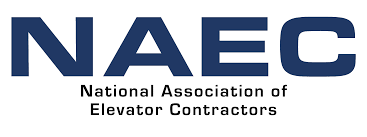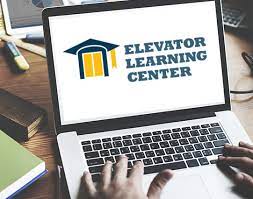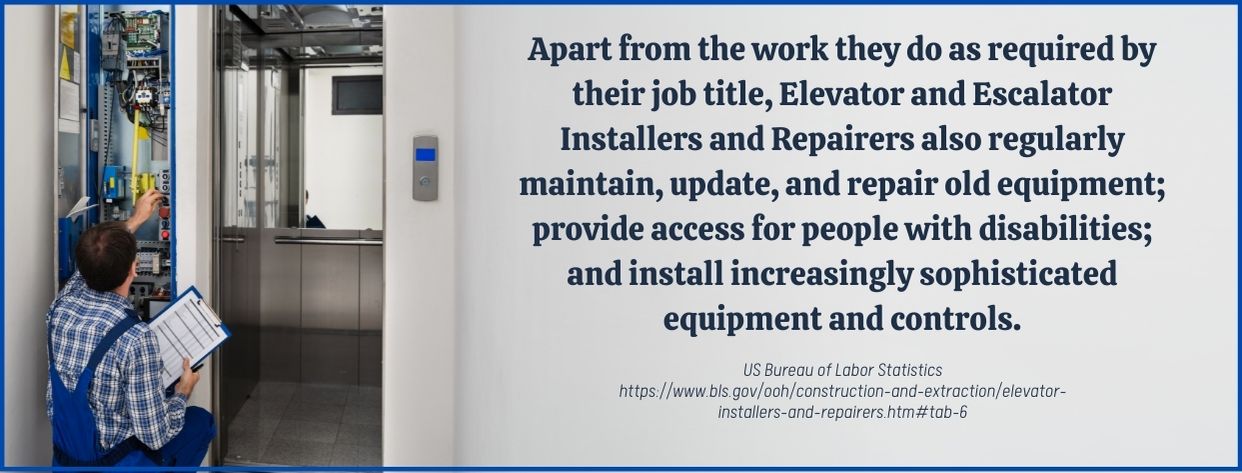Find Your Perfect School
An Elevator and Escalator Installer and Repairer plays a vital role in transporting people within a building, such as an office, mall, or factory. In many capacities, using an elevator is crucial for disabled customers or employees.
In addition, elevators and escalators must be safe and in perfect operating order to avoid catastrophic accidents resulting in death. This role is not to be taken lightly… It comes with significant responsibilities; however, the salary is good, and a college degree is unnecessary. Take a look!
Related Article: The Highest Paying Jobs With A Trade School Education
10 BEST SCHOOLS FOR AN ELEVATOR AND ESCALATOR INSTALLER AND REPAIRER DEGREE
University of Massachusetts Lowell
(Hybrid) AS in Electronic Engineering Technology
UMass Lowell offers an exceptional AS in Electronic Engineering Technology program suitable for aspiring elevator and escalator technicians. Students learn through a mix of on-campus engineering classes and online electives, so it’s easy enough to maintain a work-studies balance. The program features 22 courses with a total of 66 credits for completion before students earn the degree.
The curriculum features general education courses including College Writing, Precalculus Mathematics, and Introduction to Psychological Science. The major courses include Electric Circuits, Technical Physics, and Programming, a mix that ensures students gain a wide range of technical skills. These courses cover circuit design, microprocessors, and voltage, among other topics useful in the work of elevator and escalator technicians.
Students undergo laboratory sessions for some of the major courses. These lab sessions are designed to bridge the gap between theory and practice and, as a result, prepare students for the workplace. The associate degree becomes a foundation for getting into apprenticeship programs and earning the appropriate certification.
Students should earn at least a 2.0 overall GPA for continuous enrollment in the program.
Programs Offered:
- Education
- Psychology
Enroll in the AS in Electronic Engineering Technology program at the prestigious UMass Lowell! Think of it as a crucial step in your career in the elevator industry.
Eastern New Mexico University
(Online) AS in Electronics Engineering Technology
The great thing about ENMU’s AS in Electronics Engineering Technology program is that it establishes the basics in theory and skills that aspiring elevator and escalator technicians need. Graduates can seek immediate employment in the industry or an apprenticeship in a suitable company. Either way, the associate degree becomes a competitive advantage!
Fresh high school graduates, adult learners, and working professionals will thrive here because of its online delivery. Students complete the academic requirements of their courses, from the readings, assignments, and tests to the labs and project online. Using Mediasite and Canvas as the platforms, students access life and record lectures on their own time. Students and instructors also interact using Mediasite and other Internet-based methods.
Note that students may also choose the hybrid format with courses delivered in traditional and virtual ways. Students also have the benefit of academic advising via emails and phones. Faculty members are committed to the academic success of their students.
ENMU provides diverse student support services, too, which promote student engagement and success. These services include tutoring, a writing center, and online learning resources like databases, e-books, and journal articles. There’s even a distance learning librarian tasked with assisting online students!
Candidates must have college-level skills in algebra, trigonometry, and geometry to be considered for admission.
Programs Offered:
- Agricultural Management
- Emergency Management
Look into ENMU’s AS in Electronics Engineering Technology program if you’re considering a strong foundation for a future career in the elevator industry.
Wake Technical Community College
(On-campus) AAS in Electronics Engineering Technology
Wake Tech’s AAS in Electronics Engineering Technology program trains future technicians whose skills in the design, construction, and installation of electronic systems are recognized by employers. Students also learn the workplace-ready skill sets that make them attractive to aspiring elevator technicians’ apprenticeship programs.
The curriculum features a wide range of core courses designed to equip students with skills vital for entry-level jobs. Students develop their skills in analyzing, identifying, and troubleshooting electronic systems, which are critical skills in elevator-related jobs.
The courses include Programming, Circuit Analysis, Analog Electronics, Digital Electronics, and Industrial Controls. There’s even a dedicated course on troubleshooting! Communication Systems, Computer-Aided Drafting for Electronics, and Microprocessor Systems are also on the list of core courses.
Since elevator and escalator technicians must also possess soft skills, students also undergo writing, research and reporting, and communications training. These courses develop their oral and written communication skills as well as their critical thinking and problem-solving skills.
Due to the program’s physical and mental demands, students must also meet technical standards. These include physical fitness, including lifting objects to 25 pounds, good visual acuity, hand-eye coordination, motor skills, and hearing. These abilities are also necessary for elevator and escalator technicians whose physical and mental wellness must be top form.
Programs Offered:
- Accounting and Finance
- Agricultural Systems Technology
Earn an AAS in Electronics Engineering Technology degree from North Carolina’s largest and most prestigious community college! Your employment and apprenticeship prospects will be better for it.
Southern Technical College
(On-campus) Associate in Electrical Trades Technology
Yet another excellent associate degree that will establish your career in the elevator industry is STC’s Associate in Electrical Trades Technology degree! Students can earn it in just 18 months of full-time study in its Orlando, Florida campus and choose between day and night classes. The flexible scheduling makes it convenient for working professionals and adult learners, although full-time students also fill its classes.
Despite the program’s popularity, only a limited number of students are accepted for its classes. This allows credentialed instructors to provide personalized attention to students and ensure their academic success. Students also receive assistance in building their employment portfolios and in preparing for job or apprenticeship interviews.
The curriculum highlights a balance between theory and practice, thus combining academic subjects and laboratory sessions for hands-on experience. Students can easily access student support services, such as career guidance and an extensive library.
Note that STC is a for-profit institution and, thus, corresponding tuition and other fees apply. However, students in need can apply for a wide range of financial aid options that can result in significant tuition reductions. These include federal assistance (FAFSA) like the Pell Grant, FSEOG, and William D. Ford loan program, as well as veterans’ discounts.
Programs Offered:
- Veterinary Assisting
- Surgical Technician
What better way than to earn Southern Tech’s Associate in Electrical Trades Technology degree to jumpstart your career? Look into it now and see where it takes you and your dream!
Midlands Technical College
(Hybrid) Associate in Electronics Engineering Technology
MTC’s students in its Associate in Electronics Engineering Technology program learn the technical skills in repairing, maintaining, and troubleshooting electronic equipment and machinery. These skills can be applied in the maintenance of elevators and escalators, either through an apprenticeship or employment.
Students earn 63 credit hours in 2-3 years, with the timeframe determined by their course load per semester. Note that the program recommends a sequential study to earn the degree within the allotted time, not to mention that many courses are only offered at specific times. The trade-specific courses include Electrical Circuits, Electronic Circuits, and Digital Integrated Circuits.
The ABET-accredited program has the following student learning outcomes:
- Demonstrate knowledge and competence in tasks related to engineering technologies, as well as the individual initiative to perform them
- Apply critical thinking and problem-solving skills in finding and implementing effective solutions for technical issues in the workplace
- Combine technical information and occupational safety procedures in troubleshooting issues
- Demonstrate effective communication skills, including in solving technical and non-technical problems, within the workplace
- Stay updated with industry trends and update their skills as needed
Graduates can immediately enter the workforce as entry-level technicians in diverse fields, including the elevator industry.
Programs Offered:
- Architecture
- Criminal Justice
Midlands Tech’s Associate in Electronics Engineering Technology degree is a great ticket for entry into the competitive elevator industry. Due to its technical training emphasis, you’re more than ready!
Grantham University
(Online) AS in Electronics and Computer Engineering Technology
Grantham’s online degree programs are considered among the best when it comes to technical education due to its training-centric curriculum. Students in its AS in Electronics and Computer Engineering Technology learn the technical skills that make them ready for entry-level jobs as electronics technicians. Better yet, many also pursue careers as elevator and escalator technicians with further on-the-job training and apprenticeships.
The curriculum introduces students to the fundamentals of electrical and electronics design. Courses in analog and digital electronics, DC/AC circuit design, and computer programming deepen their understanding. (The associate degree has transferrable credits if you decide to pursue a bachelor’s degree for career advancement)
The online courses establish the theoretical foundation, while the laboratory courses bridge the gap between theory and practice. Students participate in diverse troubleshooting activities that allow them to apply their knowledge and transform it into relevant skills. Many of these activities also involve creativity in the design of electronic systems.
This is a 60-credit hours program with an average completion time of two years. Transfer credits and a higher course load per term will reduce the number of months spent in the program. Courses start every month, so interested individuals can apply whenever they are ready. Financial aid, including military benefits and scholarships, is available.
Programs Offered:
- Business Administration
- Cybersecurity
Check out Grantham’s AS in Electronics and Computer Engineering Technology program and see if it fits in with your aspirations for a career in the elevator industry!
National Association of Elevator Contractors
(On-site) Certified Elevator Technician
NAEC is the industry’s foremost organization for elevator and escalator technician certifications. While certification isn’t a compulsory requirement, it’s a highly recommended credential since it’s proof of professional proficiency. Most employers prefer applicants with certification along with academic credentials and work experience, too.
The Certified Elevator Technician (CET) Education Program is a four-year program approved by the Department of Labor (DOL). There are two levels in it that learners must complete to earn a certificate of completion. The certificate itself will only be issued after a student passes the Level 2 exam.
The core curriculum is included in Level 1, and it consists of four courses equivalent to 11 units. The units have three primary parts – a text-based workbook, course exams, and on-the-job skills evaluation. Upon completion of these requirements, an Associate Elevator Technician certification will be issued to the student. The approximate time of completion is two years.
The advanced curriculum is in Level 2 with eight courses and a two-year average completion rate. As with Level 1, there are three components: a text-based workbook, course exams, and on-the-job skills evaluation. Completing all requirements will result in the student being awarded a Certificate of Completion and eligibility for the CET Certification.
CET candidates must possess a high school diploma or GED equivalent and be at least 18 years old. Students must also have CET-S access. CET-S is the administrator designated by the company to manage the program.
Programs Offered:
- Certified Accessibility and Private Residence Lift Technician
- Vertical Transportation Management Program
Go directly to the source by enrolling in NAEC’s CET program!
DC Elevator
Elevator Mechanic Apprenticeship Program
DC Elevator takes pride in it being a premier provider of education and training programs for elevator technicians and mechanics. Among its foremost programs is the Elevator Mechanic Apprenticeship Program in partnership with the State of Kentucky’s Labor Department. Apprentices enjoy numerous benefits, including a competitive compensation package and exceptional training and work experiences.
Hands-on training is at the heart of the program, so apprentices are expected to possess a certain level of academic qualifications and work experience. Apprentices learn in DC Elevator’s headquarters and training facility in Lexington, Kentucky, and gain access to its training courses and NAEC-approved programs.
There are two of these programs that lead to professional certifications, namely:
- The Certified Elevator Technician (CET) program is for individuals interested in entry-level technician jobs. The program emphasizes industry codes and knowledge, skills, and competencies in elevator and escalator technology.
- The Certified Accessibility and Private Residence Lift Technician (CAT) program are for students interested in accessibility. While there are similar courses with the CET program, the CAT program focuses more on accessibility issues.
Apprentices may also continue with their employment at DC Elevator after completing the program or spreading their wings.
Programs Offered:
- CET
- CAT
Apprenticeships are an excellent path for getting into the best elevator companies. Check out DC Elevator’s apprenticeship program simply because it’s among the best in Kentucky!
Delaware Elevator
(Hybrid) CET Program
Delaware Elevator offers an excellent pathway toward earning your CET certification! Apprentices first undergo web-based studies for their theoretical foundation and then an on-the-job training period. The probationary period lasts between three and six months, with candidates admitted into the four-year program afterward. Apprentices who complete the program receive their CET certification.
The program emphasizes safety, so every course has a safety discussion, and the first course is exclusively dedicated to the topic. Apprentices are also encouraged to pursue excellence in every course and task. An exemplary attitude carried over into the workplace. Every apprentice performs a wide range of tasks that build up their skills as elevator technicians, including assisting licensed elevator mechanics.
The specific tasks include the installation, repair, maintenance, and modernization of elevators and escalators. Many types of machinery may also be installed and maintained, such as dumbwaiters and moving walkways in public and private buildings.
Delaware Elevator has in-house CET-S whose main job includes providing apprentices with assistance and guidance in their tasks. Access to a CET-S is among the requirements of NAEC’s CET program.
Applicants to the program must be at least 18 years old, physically able, and have a high school diploma or GED equivalent. The ability to travel and a driver’s license are also required, and applicants must pass background checks and drug tests. A security clearance is required for some job sites.
Programs Offered:
- CET
- CET Continuing Education
Getting into Delaware Elevator’s CET Program is likely the best step you will take toward a successful career as a certified elevator technician!
Elevator Learning Center
(On-site) CET Certification Program
The four-year NAEC CET certification program is also offered at Elevator Learning Center, which has modern facilities for classroom learning and hands-on training. The center has a wide array of controllers, door operators, and motors for students to practice and improve their skills.
Under NAEC standards, the CET program is a four-year training process where learners can achieve the CET certification after taking the certification exam. Every crucial aspect related to the operations of elevators and escalators, among other modes of conveyance, is discussed in detail. These include the installation and modernization, inspection and repair, and maintenance of elevators, escalators, and moving walkways.
Note that the CET program and its certification are accepted in most of the 50 states.
There are two levels of training in the program, too, and each level can be completed in two years. Level 1 consists of the four core courses with a workbook, unit exams, and skills verification as the main parts. Learners earn the Associate Elevator Technician certificate at the end of Level 1.
In Level 2, learners acquire more advanced knowledge and skills through eight courses. Again, the three components of the workbook, unit exams, and skills verification are present. Successful completers are awarded a certificate of completion and become eligible for CET certification.
Programs Offered:
- Continuing Education for Technicians
- Continuing Education for Instructors/Trainers
Get started on the right foot with a CET certification obtained from training at Elevator Learning Center!
FREQUENTLY ASKED QUESTIONS
What do Elevator and Escalator Installers do?
Elevator and Escalator Installers (also called mechanics) are responsible for the maintenance, repairs, and installation of elevators, escalators, moving walkways, and chairlifts.
They often read blueprints and assemble the appropriate components for the application, wire them up correctly, and test them out. Repairs can include malfunctioning motors, brakes, control systems, or switches, and the like.
Also, they must comply with all regulations, keep detailed records, troubleshoot complex problems, and conduct inspections. Elevator and Escalator Installers must work with power tools and sometimes in very tight spaces.
How do I become an Elevator/Escalator Installer and Repairer?
Generally, entering this field will require a high school or equivalent diploma and on-the-job training through an apprenticeship, usually lasting up to four years.
An apprenticeship program will teach you many valuable skills as you work with an experienced technician. An applicable number of technical hours and on-the-job training are required before becoming an assistant.
Going up? Becoming an Elevator and Escalator Installer takes patience, as you must start at the ground floor and work your way up… much like being in an elevator!
What kind of salary should I expect as an Elevator/Escalator Installer and Repairer?
According to the BLS, as of May 2022, Elevator and Escalator installers and Repairers earned $99,000 annually, with the highest 10% earning upwards of $135,130 per year. The top industry was employment within the government, followed by building equipment contractors.
As you work as an apprentice, your salary will typically be half of the wages of thoroughly trained and licensed installers.
What hours do Elevator/Escalator Installers and Repairers work?
Employees in this field work full-time; however, you can expect overtime pay to accommodate for looming deadlines or emergencies in which you may be on-call 24/7.
Are Elevator Installers and Repairers in demand?
With approximately 2,100 new openings per year, employment is expected to increase by 6% between 2022 and 2032, according to the BLS.
Do Elevator Installers and Repairers need to be licensed?
You will need to check with the state in which you will be working to see if they require a license, although most states do require licensure.
In addition to your license, certifications are available to showcase your talents through the National Association of Elevator Contractors and the National Association of Elevator Safety Authorities International.
Certifications include:
- Certified Elevator Technicians (CET)
- Certified Accessibility and Private Residence Lift Technicians (CAT)
- Qualified Elevator Inspectors (QEI)
What are the possible hazards to becoming an Elevator/Escalator Installer?
Physical labor in this field can result in the following conditions or dangerous situations:
- Working with heavy machinery and tools: Elevator and escalator installers work with heavy machinery and tools, which can present a risk of injury or illness if proper safety protocols are not observed.
- Working at heights: Elevator and escalator installers often work at heights, presenting a risk of falling and potential injury or death.
- Working in confined spaces: Elevator and escalator installers often work in confined spaces, which can present a risk of asphyxiation or other hazardous conditions.
- Working with electricity: Elevator and escalator installers work with electricity, which can present a risk of electric shock or fire.
- Working with hazardous materials: Elevator and escalator installers work with hazardous materials, such as lubricants and solvents, which can present a risk of chemical exposure or injury.
Will I be a good Elevator/Escalator Installer and Repairer?
Sure, you will; however, there are a few qualities and skills you will need besides your on-the-job training, such as:
- Physical stamina and strength
- Problem-solving skills
- Good communication skills
- Able to work in tight spaces
- Ability to work at heights
- Mechanically-minded
- Detail-oriented
- Good time-management skills
- Excellent driving record











